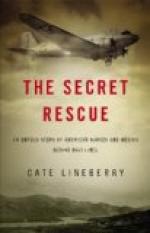The college in general had taken Neil’s deflection philosophically after the first day or so of wonderment and dismay. The trust in Mills was absolute, and if Mills said Fletcher wasn’t as good as Gale for left half-back, why, he wasn’t; that was all there was about it. There was one person in college, however, who was not deceived. Sydney Burr, recollecting Neil’s “supposititious case,” never doubted that Neil had purposely sacrificed himself for his room-mate. At first he was inclined to protest to Neil, even to go the length of making Mills cognizant of the real situation; but in the end he kept his own counsel, doubtful of his right to interfere. And, in some way, he grew to think that Paul was not in the dark; that he knew of Neil’s plan and was lending his sanction to it; that, in fact, the whole arrangement was a conspiracy in which both Neil and Paul shared equally. In this he did Paul injustice, as he found out later.
He went to Neil’s room that Friday night for a few minutes and found Paul much wrought up over the disappearance of Tom Cowan. Cowan’s room looked as though a cyclone had struck it, Paul declared, and Cowan himself was nowhere to be found.
“I’ll bet he’s done what he said he’d do and left,” said Paul. But Sydney had seen him but an hour or so before at commons, and Paul set out to hunt him up.
“I know you chaps don’t like him,” he said; “but he’s been mighty decent to me, and I don’t want to seem to be going back on him just now when he’s so down on his luck. I’ll be back in a few minutes.”
Sydney found Neil quite cheerful and marveled at it. He himself was oppressed by a nervousness that couldn’t have been worse had he been due to face Robinson’s big center the next day. He feared the “antidote” wouldn’t work right; he feared Robinson had found out all about it and had changed their offense; he feared a dozen evils, and Neil was kept busy comforting him. At nine o’clock Paul returned without tidings of Cowan, and Sydney said good-night.
“I don’t believe I’ll go out to the field to-morrow,” he said half seriously. “I’ll stay in my room and listen to the cheering. If it sounds right toward the end of the game I’ll know that things have gone our way.”
“You won’t be able to tell anything of the sort,” said Neil, “for the fellows are going to cheer just as hard if we lose as they would had we won. Mills insists on that, and what he says goes this year.”
“That’s so,” said Paul; “and it’s the way it ought to be. If ever a team needs cheering and encouragement it’s when things are blackest, and not when it’s winning.”
“And so, you see, you’ll have to go to the field, Syd,” said Neil as he followed the other out to the porch. “By Jove, what a night, eh? I never saw so many stars, I believe. Well, we’ll have a good clear day for the game and a good turf underfoot. Good-night, Syd.”
“Good-night,” answered the other. Then, sorrowfully, “I do wish you were going to play, Neil.”




